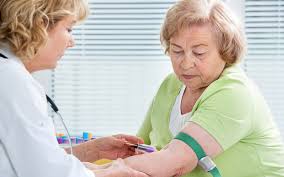Sexually transmitted diseases (STDs) are a common concern, yet regular testing can help manage and reduce risks. Regular screenings can provide the opportunity to monitor your sexual health, promote early detection of potential issues, and maintain control over your well-being. To help you understand the process and its relevance, this article outlines why regular STD screenings are a practical addition to your healthcare routine.
Understanding the Prevalence of STDs
STDs affect millions of people worldwide each year. Many may not know they carry an infection, as some STDs do not show visible symptoms for months or even years. Without testing, it’s possible to pass the infection to others unintentionally.
Regular testing offers a way to monitor your health while reducing the spread of these infections within your community. Awareness around the prevalence of these infections is growing, but many may still delay screenings due to stigma or a lack of awareness. Integrating testing into routine healthcare is one way to address this concern and promote responsible behaviors.
Screening Options Cater to All Backgrounds
STD testing can accommodate a variety of needs, lifestyles, and preferences. Clinics, health centers, and private care providers can offer discreet services to individuals, providing privacy and comfort during the process. Many facilities allow you to choose between specific tests based on potential exposure or comprehensive panels that screen for multiple STDs. Testing can involve urine samples, blood tests, or swabs, depending on what you’re being screened for. These procedures are straightforward and can be completed during a single visit.
Protecting Yourself and Your Partners
One of the key advantages of regular STD screenings is their role in safeguarding both your health and the health of your sexual partners. Many STDs are treatable or manageable when identified early. Knowing your status allows you to explore treatment options, which may include prescribed medication or lifestyle adjustments. Regular screenings can create an opportunity to have open conversations with your partners about health and safety. Transparency fosters informed decision-making and encourages protective behaviors.
Promoting Long-Term Health Care With STD Screenings
Undiagnosed and untreated STDs can contribute to long-term complications. Regular testing may help detect infections early, providing a baseline for timely intervention. Healthcare providers use this starting point to recommend treatments and reduce the likelihood of disease progression. Screening on a regular basis also establishes a record of your health history. This documentation can assist healthcare professionals in tailoring future medical care to your specific needs.
Factors That Might Require Frequent Testing
The frequency of STD screenings may vary depending on individual behavior or medical history. Those with new or multiple sexual partners may find testing every few months to be beneficial. Individuals in long-term relationships can also benefit from occasional screenings, as it enhances the health of both parties.
Certain populations, such as pregnant individuals or those with a history of STDs, might also require more frequent testing to address additional risks. Your healthcare provider can offer guidance on developing a testing schedule that aligns with your unique circumstances.
You may want to bring the following to your screening appointment:
- A list of your current medications and ongoing treatments
- Details about recent sexual activity, if requested by the provider
- Any previous history of STDs or treatment.
Take Control of Your Sexual Health
Regular STD screenings are an effective way to take control of your sexual health. By monitoring your status, addressing potential health concerns early, and fostering transparency in your relationships, you can maintain a proactive approach to health care. If you’re ready to begin, seek out a local clinic or healthcare provider that offers STD testing services.

